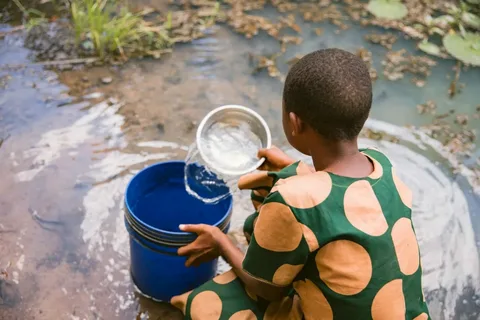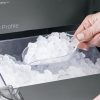Contaminated water is a critical problem, especially for children. Exposure to unsafe drinking water can lead to vomiting and diarrhea in children, which can cause dehydration. It can also increase the risk of foodborne illnesses like E.coli and salmonella.
In this article, we will discuss what contaminated water is, how it affects children’s health, and ways to protect your child from contaminated water.
Table of Contents
The Sources of Water Contamination
The sources of water contamination are many and varied, so it’s necessary to understand the different ways water can become contaminated.
Contaminated drinking water is one of the most common causes of exposure to pathogenic organisms. Contamination may occur at any point between a source and your tap, but it’s more likely to be caused by inadequate treatment facilities than natural processes like sunlight exposure.
Water contamination can produce devastating results affecting millions of lives. The Camp Lejeune water contamination crisis is an example of how contaminated water can harm tens of thousands of people.
Camp Lejeune witnessed one of the most distressing water contamination incidents in the history of the United States. As a result, numerous people who were exposed to toxins at the location have filed a Camp Lejeune lawsuit to get compensation from the parties responsible for the incident.
Individuals who have or plan to file the lawsuit must keep themselves up-to-date with the latest Camp Lejeune lawsuit update, which they can find from multiple sources online or even law firms’ websites.
Health Risks of Contaminated Water on Children
Children are at greater risk for the health complications associated with contaminated water. It is because their bodies are still developing, meaning they can’t fight off infections as well as adults can.
Children who drink contaminated water may develop diarrhea or other gastrointestinal problems. Dehydration is also a concern when children drink contaminated water, so you must ensure they stay hydrated by drinking plenty of clean water daily.
Apart from the common diseases mentioned above, TorHoerman Law LLC, a law firm, refers to the study conducted by CDC. It found that children exposed to contaminated water at Camp Lejeune had a higher rate of childhood diseases like neural tube defects, lymphoma, and leukemia.
If a child gets sick from drinking contaminated water, there’s an increased chance that their kidneys will be affected by the illness. A study published in Springer found that worldwide, 1 in 10,000 children may have chronic kidney disease.
These organs must work properly because if they don’t, they won’t be able to filter out toxins from your body effectively anymore. It could lead to liver damage later if things aren’t taken care of.
Symptoms of Water Contamination in Children
Water contamination in children can cause a variety of symptoms. Diarrhea, fever, and vomiting are common signs of waterborne illnesses. Diarrhea is one of the second leading causes of death among children under five years. Around 1 in 5 kids dies due to diarrhea worldwide, according to a study published by Scientific Research.
Skin rashes are another symptom you should look out for if your child has been exposed to contaminated water. Eye infections can also happen after exposure to contaminated water sources such as lakes or rivers. In addition, respiratory problems like coughing and wheezing may develop in some cases due to inhaling pathogens in water sources.
The symptoms of waterborne illness can vary from person to person. For example, children may experience milder symptoms and recover faster than adults. However, the severity of the illness varies with each case.
You should always ensure your child washes his hands after using the bathroom and before eating. If camping in a wilderness area, treat all water before drinking it to avoid exposure to pathogens. If no safe drinking water is available, boil it for at least five minutes before consuming it.
Ways to Protect Children from Contaminated Water
As a parent, you can take several steps to protect your child from contaminated water.
- Use bottled water when possible. Bottled water is generally safer than tap because it’s been treated and tested for purity before being sold in stores. If you don’t have access to bottled water, boil any tap water for at least one minute before using it.
- Use a filter on your home faucet or install an under-sink filter system if necessary. These will remove the most dangerous bacteria from your household supply of H2O. If you live in an area with high lead levels in the municipal supply, consider investing in a reverse osmosis system that removes chemicals and microorganisms from drinking sources.
According to Forbes, reverse osmosis is an effective and reliable method to obtain safe drinking water. When working at its capacity, it removes all the impurities in water. Therefore using a reverse osmosis system is one of the best options for getting safe drinking water.
What to Do If Your Child is Exposed to Contaminated Water
If your child has been exposed to contaminated water, it’s necessary to seek medical attention as soon as possible. Your doctor can tell you if your child is at risk of developing an illness and what steps they can take to prevent that.
While your child is in the hospital or waiting for test results, there are some things that parents can do at home:
- Wash their hands frequently with soap and warm water. It helps prevent the spread of germs that may cause illness in children exposed to contaminated water who haven’t yet developed symptoms.
- Wash clothing worn during swimming or playing outdoors before wearing it again, especially socks and shoes, because these items tend not to get cleaned as often as other clothes.
It Can be Dangerous to Drink Unsafe Tap Water
Bacteria, viruses, and parasites are among the contaminants that can be present in tap water. It can also be tainted by sewage, chemicals, and heavy metals. Agricultural runoff can contaminate tap water that carries pesticides or chemical fertilizers into your town’s reservoir.
The effects of contaminated water on children can be devastating, but there are ways to prevent it. Don’t let your family be one of the thousands who suffer from waterborne illnesses. Instead, protect yourself and your loved ones by learning to identify contaminated water sources and take precautions when using them.







